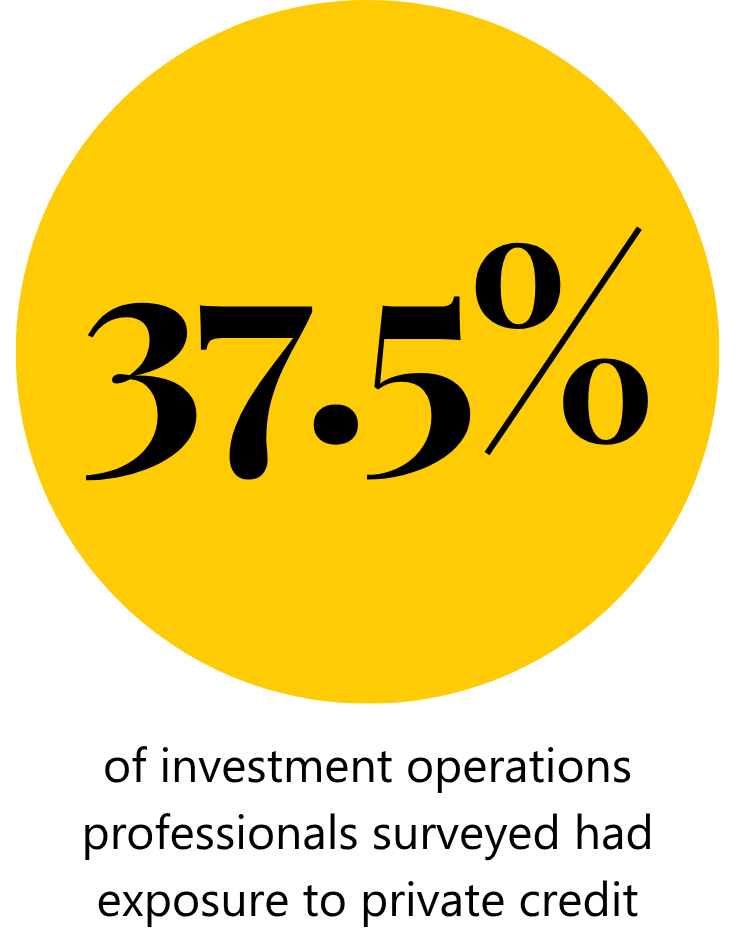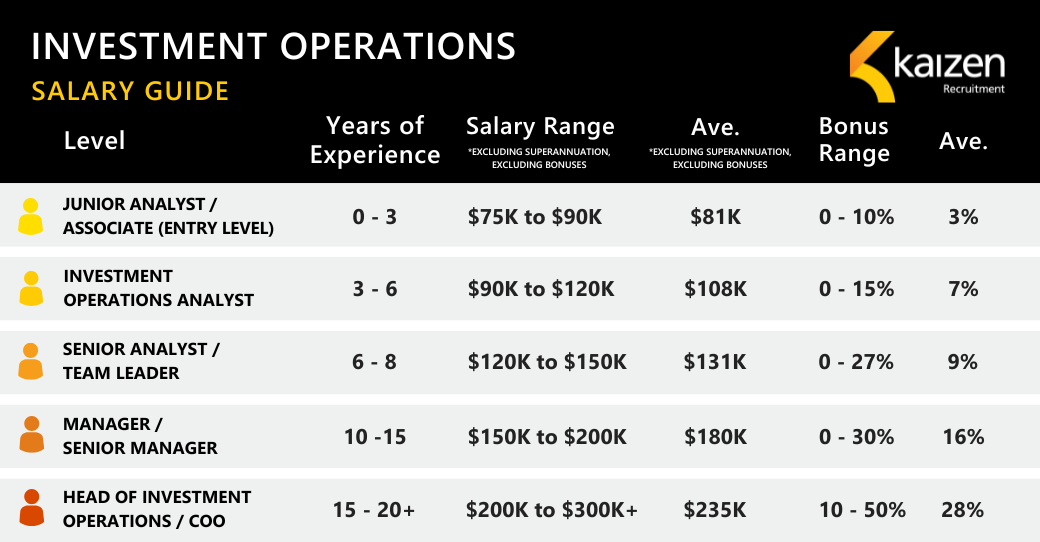Investment Operations Salary Guide 2025
Overview
Hiring across investment operations in Australia has remained steady over the past 12 months, with notable differences observed between asset classes. Private markets and ETFs have seen significant activity, while many firms specialising in public markets have adopted a more cautious approach, leading to an uptick in contract positions amid broader uncertainty.
Mid-to-senior professionals (10+ years’ experience) have faced fewer open roles, whereas demand has increased for candidates with 3–10 years of experience, particularly those with a broad, cross-functional investment operations skill set.
Candidates with strong data analytics and coding capabilities are in high demand, with SQL, Python, and Power BI being the most sought-after tools among our client base. Additionally, as allocations to alternative assets continue to rise, professionals with exposure to private credit and private equity are seeing elevated demand across the market.
Looking ahead to the new financial year, we anticipate that many of these patterns will continue to shape the industry and talent management. Based on insights gathered from professionals in our vast network, we have developed a detailed salary guide below and a market overview to highlight the key trends shaping investment operations today.
Salary Data
Trends
Areas of Growth: Private markets and ETFs

Our survey of investment operations professionals found that while 86% of respondents had equities experience, only 37.5% had exposure to private credit. As a result, we have seen several candidates successfully transition into the space, with some firms hiring based on aptitude / attitude and a willingness to invest in training and upskilling.
Another area experiencing strong momentum is Exchange-Traded Funds (ETFs), with significant inflows and firms continuing to expand their presence in this growing segment of the market.
AI in Investment Operations
One of the most discussed topics in investment operations currently is the evolving adoption of AI. The consensus is that while AI holds immense promise, its implementation remains in the early stages for many organisations. At present, AI is being applied to specific operational functions such as reconciliations, operational due diligence forms, report generation, and member reporting and engagement.
Some funds have reported modest returns on investment, including FTE reductions through automation. However, most agree that AI’s true value lies in enabling scalability to meet the growing investor demand for customised and timely reporting. The prevailing view is that AI will not replace people but will replace those who do not adapt to working alongside it.
From our recent Investment Operations Roundtable, participants highlighted a gap between AI’s promise and its current performance, with many professionals unconvinced by the tangible value delivered to date.
Work From Home in Investment Operations
Over the past 12 months, there has been a noticeable increase in firms requiring staff to be in the office 4–5 days a week, with many citing company culture, productivity, and collaboration as key drivers. However, the extent of this return to the office appears to have been somewhat overstated in the media.
Our survey of investment operations professionals in Australia found that only 8% of staff are currently in the office five days a week. The majority work three days in the office (43%), followed by two days (25%) and four days (20%). Fully remote arrangements are becoming more limited, with just 4% working 0–1 days in the office.
M&A Activity and Transitions Experience
Consolidation across the superannuation sector and ongoing M&A activity across both super funds and fund managers has driven increased demand for candidates with strong transitions and project experience. These professionals are playing a critical role in supporting post-merger integration, system migrations, and process harmonisation, particularly in areas such as unit pricing, reporting, and custody transitions.
This heightened M&A activity has also coincided with organisational restructuring and some short-term uncertainty, leading to an increase in contract-based roles to maintain BAU operations. These contract opportunities have been especially welcomed by international professionals arriving on working holiday visas, as many fund managers remain cautious about sponsorship commitments in the current market.
Offshoring and Outsourcing
Offshoring and outsourcing continue to present challenges for fund managers and superannuation funds when recruiting. Custody banks, traditionally seen as a strong pipeline of talent, are no longer producing candidates with the same breadth of experience. As many service providers shift operations offshore and backfill local roles within their centres of excellence, there is a growing lack of end-to-end knowledge in the domestic market.
This trend is particularly impacting early-career professionals. With an increasing number of entry-level roles at third-party service providers being relocated offshore, opportunities for graduates and junior candidates in Australia are becoming more limited. This shift may hinder the professional development of future talent and contribute to long-term capability gaps within the Australian investment operations workforce.
Data Analytics and Automation
Funds management firms continue to place a growing emphasis on technology, data, and system automation, driving increased demand for candidates with strong data analytics capabilities. Skillsets in SQL, Python, and Power BI are particularly sought after, as firms look to enhance operational efficiency, reporting accuracy, and data-driven decision-making.
However, while demand for these skills continues to rise, supply remains a key challenge. Many investment operations professionals have limited exposure to advanced analytics tools in their day-to-day roles, leading some firms to recruit from outside the funds management sector – such as consulting, banking, or tech – to fill this gap. As automation and data integration become increasingly central to operational functions, the need for professionals who can bridge the gap between investment operations and data analytics will only grow.
Outlook
Looking ahead, we anticipate momentum across both the private markets and ETFs landscape to continue. The demand for professionals with advanced data analytics and coding capabilities is expected to accelerate as firms increasingly leverage technology for efficiency, risk management, and strategic insights. Meanwhile, regulatory pressure will continue to drive further consolidation within the superannuation space, resulting in more demand for professionals with expertise in managing complex transitions and integration projects.
Get in Touch
Kaizen Recruitment specialises in financial services recruitment across funds management, wealth management, superannuation, investment consulting and insurance. We are based in Melbourne and Sydney.
If you’d like to discuss candidate career drivers and the current stats of investment operations within the financial services recruitment landscape, please reach out to Darragh at +61 478 350 003 or get in touch with our team below.
Like what you see?
Please feel welcome to join
Kaizen Recruitment’s mailing list
















